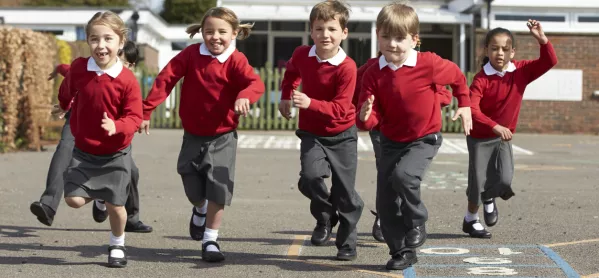Education transforms lives. This is particularly true of early years education, which has a special potency to improve the life chances of disadvantaged children.
At a time when we should be celebrating the efforts of our early years staff in schools, I am worried about the intolerable strains on them.
We know how important the early years are. The Effective Pre-School Education (EPPE) project tracked 2,800 children for over 13 years. It concluded that high-quality early education is good for all children and especially good for disadvantaged children. The children in the EPPE cohort who accessed high-quality early education achieved higher English and maths GCSE results and were more likely to secure five or more good GCSE passes.
More by Julian Grenier:
Today, 24 years on from the start of the EPPE project, the youngest children in our schools have lived much of their lives in lockdowns. Many children’s development has taken a hit as a result. That includes children at home with working parents who did not get the time and attention they needed because their parents were under so much pressure. It also includes many children in communities like the one where I work, where many families were destitute.
As young children started school in September, many had delayed communication. Many found it hard to play and learn together. It has been very hard for children to manage strong emotions as they try to share and wait their turn. Staff have also been giving our youngest children lots of practical support with eating, drinking, managing clothing and using the toilet.
Changing nappies and soiled pants every day in reception is exhausting. So is the emotional labour of remaining calm and sympathetic as children struggle with feelings of sadness and anger. It has been a tough time.
Children are making great progress as they learn to manage their feelings and care for themselves. Sensible school leaders understand that they need to adapt routines and the curriculum when children’s development is not as far on as usual.
Sadly, I am hearing that many reception teachers feel their work isn’t appreciated. My colleague Ben Smith, a fellow member of Ofsted’s Early Education Curriculum Forum, has told me about teachers who are overwhelmed by unnecessary tasks.
Teachers are being told to collect samples to show whether children are achieving “expected levels”, even though the Early Learning Goals do not need to be assessed until the summer term. They are being told to get children writing two or three sentences at a time, even though many children are just getting confident to speak in sentences at school.
Early years education is not well-understood by many school leaders. All too often, it has the lowest status in schools and is not even seen as “proper” teaching.
If we don’t look out for our early years staff, we are going to lose some brilliant practitioners in 2022. That will be bad for all children. It will be especially bad for disadvantaged children, who benefit most from loving attention, care and teaching in the early years.
Dr Julian Grenier is the headteacher of Sheringham Nursery School and Children’s Centre. He co-leads the East London Research School




